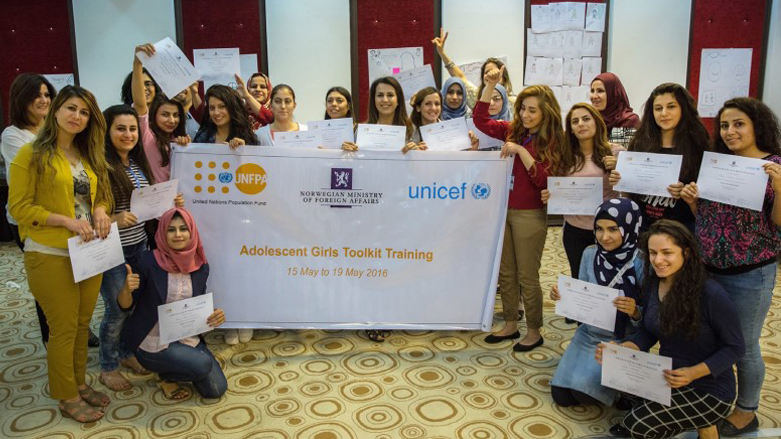Canada gives UNICEF $1.4 million to help 'generate educational and economic opportunities' for Iraqi youth
"More than 1,500 socially excluded young people aged between 10-24 years from Baghdad, Anbar and Basra, over half of them girls, will receive direct support to transition from learning to earning and social inclusion."

ERBIL (Kurdistan 24) - The United Nations International Children's Emergency Fund (UNICEF) announced on Thursday that it received $1.4 million from the Canadian government for supporting employment opportunities for Iraqi youth.
"More than 1,500 socially excluded young people aged between 10-24 years from Baghdad, Anbar and Basra, over half of them girls, will receive direct support to transition from learning to earning and social inclusion," read a statement by UNICEF.
According to the statement, UNICEF "will support girls' equal participation in learning, skill development, and employability, contributing to their empowerment and expansion of options as they transition to adulthood."
"Canada's $1.4m contribution to @UNICEFiraq will generate educational & economic opportunities for close to 1500 young people in #Iraq," tweeted the Ambassador of Canada to Iraq, Gregory Galligan. "The programme will support girls and boys transitioning from learning to earning in Baghdad, Anbar, and Basra."
Canada's $1.4m contribution to @UNICEFiraq will generate educational & economic opportunities for close to 1500 young people in #Iraq. The programme will support girls and boys transitioning from learning to earning in Baghdad, Anbar and Basra. @CanadaDev https://t.co/cnsBC7rFse
— Gregory Galligan 🇨🇦 (@Greg_Galligan) April 28, 2022
The UNICEF statement also said that "the project's end goal is for girls to serve as equal and empowered community innovators, proposing, co-designing and leading positive development and serving as role models for other girls and boys."
On Sunday, UNICEF announced that it had also received $2.6 million from the German government to support the provision of basic services and the COVID-19 response in Iraq.
"The German Government funding will allow 1 million children and adolescents to have continued access to learning through a combination of approaches such as blended learning and 50,000 vulnerable people to receive critical child protection services," the UN agency said in a statement.